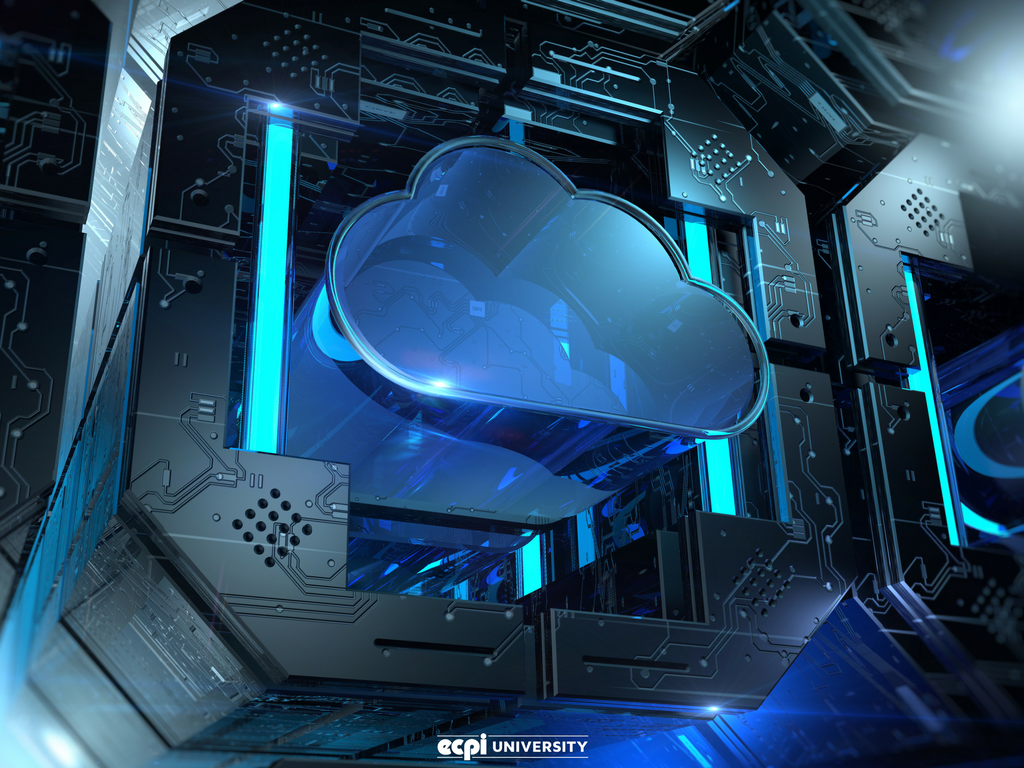
Cloud Computing Jobs: What Are the Requirements?
Cloud computing is not new, but nor is it well understood. You've likely heard about the Cloud for years, and probably use it to store photos, documents, or other files--but do you know how it works? If you're interested in learning more about this unique method of data storage and the behind-the-scenes workings which keep it all running smoothly, then consider earning a degree. At an accelerated university, you could earn a bachelor's degree in Cloud Computing in as little as 2.5 years.
Benefits of Venturing into the Cloud Computing Field
Learn New Skills
According to LinkedIn’s 2016 Global Top Skills List, cloud and distributed computing is a valuable tool to add to your arsenal. This skill also translates well to other IT jobs and you will be able to keep up with the latest developments in the field. Whether you intend to later venture into cybersecurity or build a solid infrastructure, cloud-computing skills could help you move forward.
There are Many Places Where You Could Work
While working at some of the biggest companies like Microsoft, Amazon, and Google have several benefits. At first, it may be unattainable, depending on your level of experience. Top computing companies often require years of experience and they typically prefer to train new hires on how to use their specific systems.
Alternatively, you can choose a company that doesn’t focus specifically on cloud computing such as banks, IT companies, and companies in industries that use the cloud but lack a cloud computing specialist. Doing this could enhance your skills and you can gain valuable experience in the field.
Responsibilities in Cloud Computing Jobs
Network and datacenter administrator: As a datacenter administrator, you will be in charge of important systems, and you will need expansive knowledge about everything that happens in the data center including operations, maintenance, infrastructure design, and management. In terms of equipment, you will handle network switches, servers, and storage arrays.
Network infrastructure support: The role of a network infrastructure support engineer involves building and maintaining the fabric on which all IT systems and services are built. The infrastructure extends to internet connections, structured cabling, and storage area networks. Additionally, due to the current trend towards cloud computing, these engineers help migrate existing systems to cloud-based providers.
Storage technology manager: As a storage technology manager, you will identify and resolve both software and hardware problems by replacing defective components in an organization’s systems.
Virtual server administrator: A virtualization administrator is responsible for virtual environment set up and maintenance. The virtual environment can consist of network resources, operating systems, desktops, and servers. Due to the recent migration to the cloud, virtual server assistants are also shifting focus to cloud computing.
Network implementation team: Nobody is affected more during the transition to the cloud than the network implementation team. You will be tasked with keeping data and network users safe. Although the responsibility is shared with the cloud provider, the network implementation team is also responsible.
Information technology solution providers: As an information technology specialist, you will design, operate, and maintain technology products. This field isn’t limited to technology companies. You could work with any agency, business or organization that uses technology and manages large amounts of information.
Network support and help desks: As a network support helpdesk employee, your main responsibility will entail monitoring and maintaining computer and network systems within a business in a technical support role. In case of any issues such as viruses, forgotten passwords or email issues, you are the first person that employees will come to. Other tasks can include diagnosing hardware and software faults, configuring computer systems and solving technical problems, either face-to-face, or over the phone.
Importance of Formal Education in Cloud Computing
Cloud computing requires you to use shared resources that are available through a cloud service provider. Some of the resources can include software applications, storage space, and servers. Through formal education, you could learn to:
- Create virtual servers in the cloud
- Configure monitoring and storage services in the cloud
- Setup load balancer of current infrastructure
You’re Closer than You Think
Do you have your head in the clouds? If you want to earn a Bachelor of Science Degree in Computer and Information Science with a Major in Cyber and Network Security - Cloud Computing Track, consider ECPI University for the education you need. For more information about this accelerated program, connect with a helpful admissions advisor today.
It could be the Best Decision You Ever Make!
DISCLAIMER – ECPI University makes no claim, warranty, or guarantee as to actual employability or earning potential to current, past or future students or graduates of any educational program we offer. The ECPI University website is published for informational purposes only. Every effort is made to ensure the accuracy of information contained on the ECPI.edu domain; however, no warranty of accuracy is made. No contractual rights, either expressed or implied, are created by its content.
For more information about ECPI University or any of our programs click here: http://www.ecpi.edu/ or http://ow.ly/Ca1ya.




